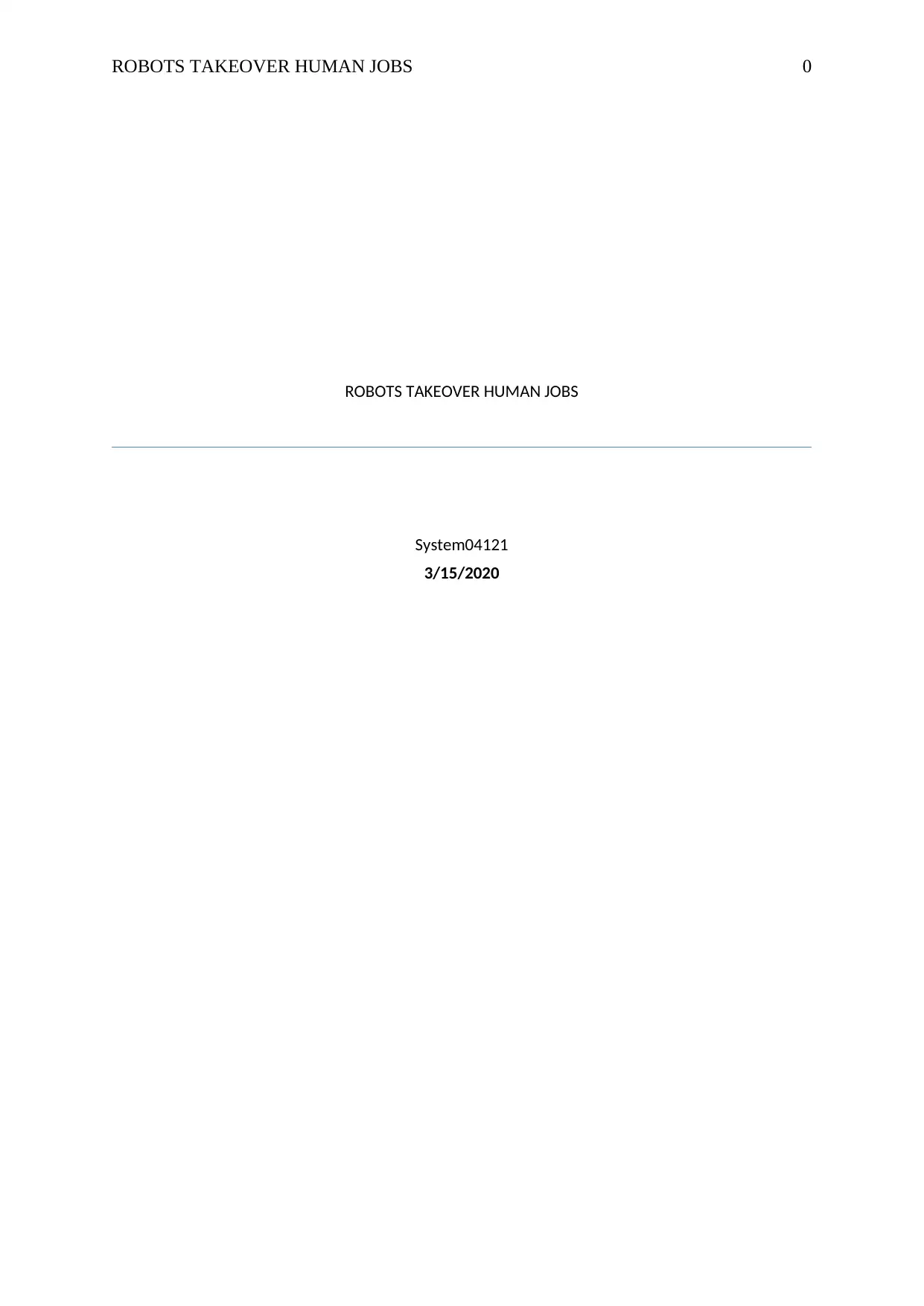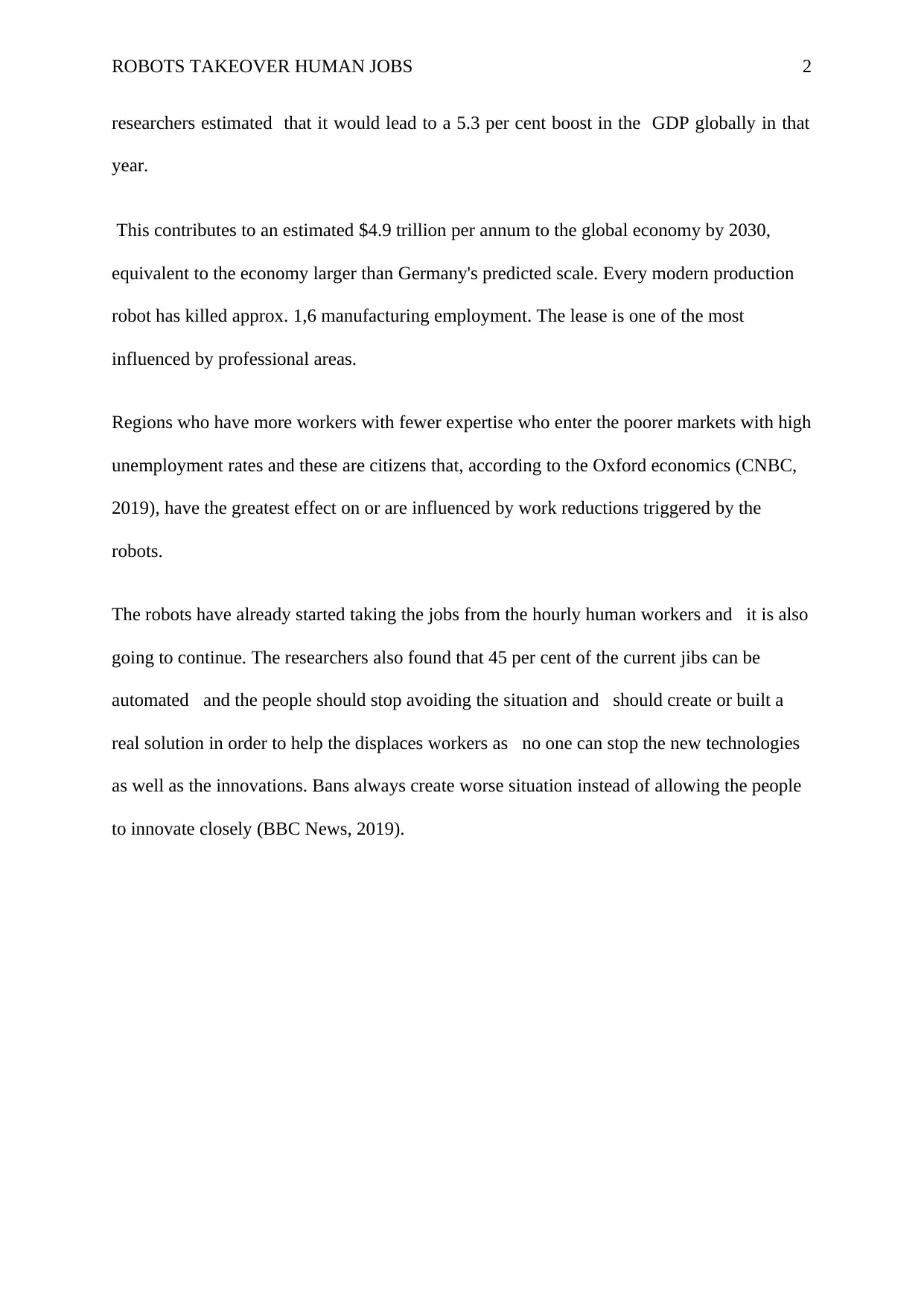Economic Analysis: The Impact of Robots on Human Job Displacement
VerifiedAdded on 2022/08/23
|4
|581
|85
Essay
AI Summary
This essay examines the increasing role of robots in the workforce and the consequent displacement of human jobs. It highlights predictions that robots will take over millions of jobs worldwide by 2030, particularly impacting low-skilled workers and contributing to income inequality. While automation is expected to boost global GDP, the essay emphasizes the need for proactive solutions to support displaced workers and address the challenges posed by technological advancements. The analysis draws upon recent reports and studies to provide a comprehensive overview of the economic implications of robotization.
1 out of 4







![[object Object]](/_next/static/media/star-bottom.7253800d.svg)